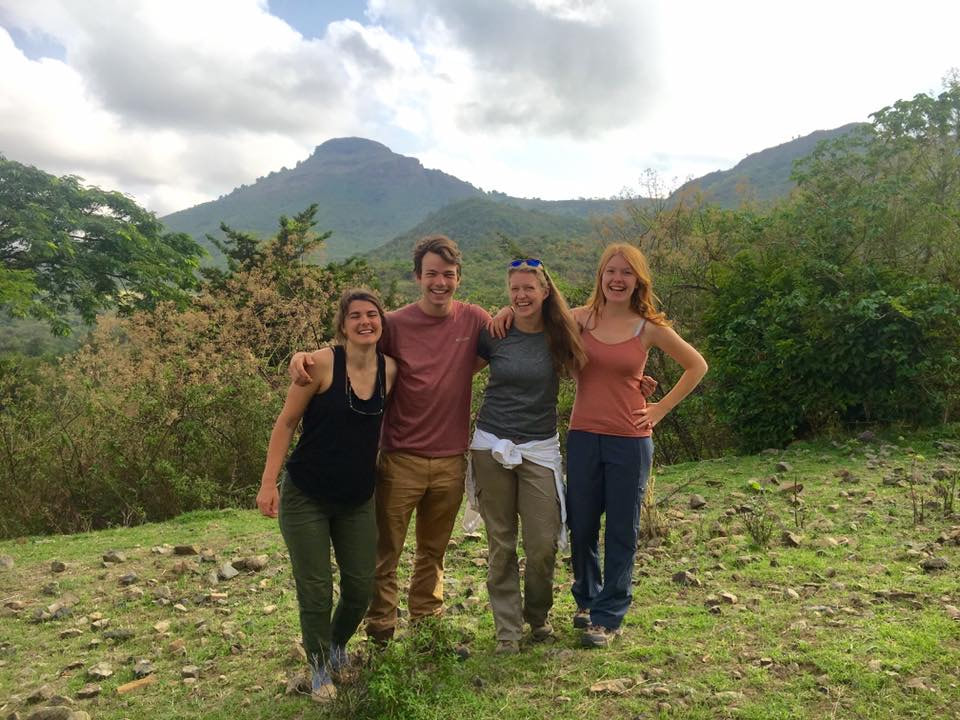|
Hello and welcome to my second attempt at a science blog! In my first blog, I was writing about my time as an undergraduate at Colgate University doing field work in Ethiopia. It started as a means of let my parents know I was ok during my trip, but turned into a great way to document the field work experience and has been fun to return years later. Being a part of that research team was an incredible entry point to ecology and an incredible project over all. If you want to learn more about church forest conservation, there has been a lot of great coverage of our research which you can find compiled at Dr. Catherine Cardelus' website.
The name of this blog #scicomm(entary) is meant to convey that I will be writing commentary on science communication, in this case mostly of environmental and climate topics. I'm not doing too much field work now toward the end of my PhD but instead spending a lot of time reading scientific papers related to my research. My dissertation work is focused on the effects of climate change on soil carbon, and since I started my PhD in 2016, the discourse around soil carbon has dramatically increased. I have become interested in conversations about soil carbon and "natural climate solutions" more broadly. Reading the published papers, the twitter buzz around those papers, response papers, and coverage in blogs and national media can be overwhelming and intimidating, even for someone who is supposed to be an expert in these topics! This makes me wonder how the "average consumer" is handling the influx of information as news outlets start to ramp up their (relatively anemic) climate news coverage. Pressure to develop climate solutions combined with the pressure of academia to publish in high impact journals is a dangerous combination. It's how a study about the potential of trees to be a carbon sink results in claims that we can "solve" climate change with trees, results in headlines like: Why We Believe Planting 1 Trillion Trees Can Save the Planet -Time Planting a trillion trees could be the "most effective solution" to climate change, study says - CBS The most effective way to tackle climate change? Plant 1 trillion trees - CNN This then spawns a series of papers pointing out the limitations of such claims (ie, planting trees in ecosystems that don't naturally have trees is likely to have negative consequences on C storage), which spawns headlines like: Why Planting Trees Won’t Save Us. If a climate solution sounds too good to be true, it probably is. Two new studies expose the magical thinking around the trillion trees initiative- Rolling Stone Trying to Plant a Trillion Trees Won't Solve Anything- Wired It's understandable that the average news consumer might be more than a little confused. More concerning, they might be a little distrustful of climate science. If the scientists can't agree on a climate solution, do we have any hope at all? Unfortunately, neither academic publications nor front-page news rewards nuanced conclusions in headlines. It is extremely common to see research findings scaled up in a way that the data shouldn't be used, but that makes for a compelling closing argument. I'm guilty of this myself, as much as I hate to admit it. This cycle played out on a global stage with the tree planting debacle and now it seems that soil carbon is heading into the same roller coaster. How can we interrupt this up and down narrative and portray all of these climate "solutions" is a way that everyone can understand? What is the realistic potential of soil carbon to drawdown atmospheric CO2 relative to planting trees? How do these compare to the potential of solar to decrease emissions? Working our way out of the current climate situation we have dug ourselves into will take all of the solutions and ingenuity humanity can come up with. If you're interested in learning about the multitude of axes on which great people are taking on the adaptation/mitigation/justice aspects of climate change, read "All We Can Save". This compilation of essays by women leading the climate revolution is a great example of the kind of realistic, hopeful, multifaceted climate approach that should be communicated to public. In the mean time, I will be here, commentating and hopefully contextualizing these on-going climate solution debates and how they are covered in the news. I will probably also share thoughts on the ways in which science is currently done and how it needs to evolve to address the climate crisis. Inevitably I will share great podcast episodes. Who knows what else will end up in this blog! My hope is that it might be a useful resource for anyone hoping to dig behind the headlines to find out what they, and we, should all be doing to save the planet.
1 Comment
|
About MeAn ecosystem ecologist perspective on the conversations around natural climate solutions. Archives
August 2022
Categories |


 RSS Feed
RSS Feed
